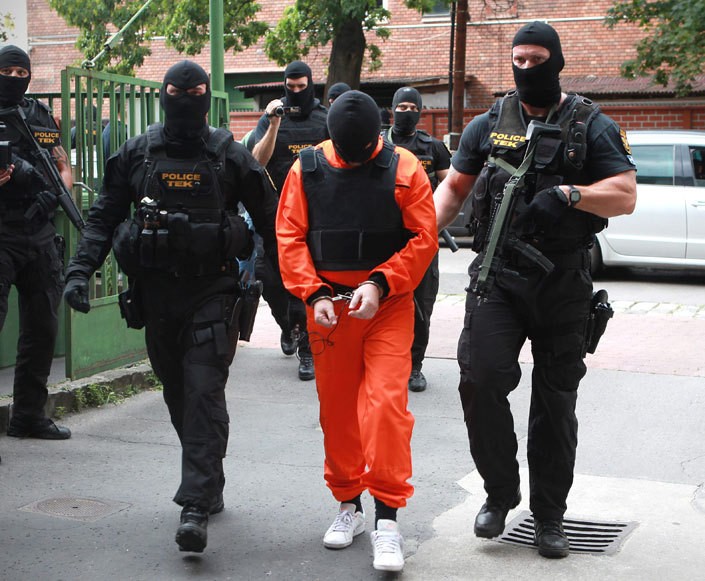The https://english.atlatszo.hu use cookies to track and profile customers such as action tags and pixel tracking on our website to assist our marketing. On our website we use technical, analytical, marketing and preference cookies. These are necessary for our site to work properly and to give us inforamation about how our site is used. See Cookies Policy
Key underworld figure speaks out
Atlatszo.hu continues its investigations into one of the most extensive criminal schemes in the history of democratic Hungary. It spans many years, and is tied to organized crime as well as to the political elite. We visited one of the key figures currently undergoing trial, and he wasn’t the least bit reluctant to point the finger at the country’s current police minister.

A new chapter recently opened in Atlatszo.hu’s efforts to untangle the network of business and political interests behind the curious dealing of valuable real estate in downtown Budapest. We took the opportunity to interview one of the most notorious figures in Hungary’s criminal underworld, a key figure in this and a number of other affairs. Tamás Portik is currently being detained for alleged crimes spanning fraud all the way to murder. He is being investigated for his suspected involvement in a handful of showdowns in the nineties that left several mobsters dead. We spoke to him under supervision from the authorities.
During the interview, Portik regularly attributed a key role in a number of criminal schemes over the past few decades to Sándor Pintér, former police chief, Minister in the first Fidesz government from 1998-2002, and who is serving consecutive terms as Interior Minister since the present Fidesz government came to power. When he was ousted from his police job, Pintér went into private security services, where he made a fortune. He also established a number of business ties that may in fact already have been in existence when he was head of the police.
But Portik also hinted at more sweeping involvement. He noted that the entire oil “bleaching” scheme was a result of the 1993 vote taken by parliament, indicating that there was even broader political involvement. The oil scheme took shape following a political decision that subsidized fuel was designated for household use, whereas the price of “normal” fuel, chemically the exact same substance and differentiated only by its use, was determined by the market. Being able to buy “household” fuel cheaply and sell it on as “normal” had an irresistible appeal to many people looking to make a profit and willing to bend the law.
Portik claims that these dealings reached such proportions that they could not have happened without the consent of the politicians as well as the authorities. He pointed to several other figures that recently experienced a change in attitude from the authorities and are now facing criminal prosecution having previously conducted illegal activities on a grand scale. László Vizoviczki ran a number of Budapest clubs where it was common knowledge that drugs were easily available and which were also linked with violence and even fatalities. The same applies to Péter Tasnádi, a businessmen currently involved in the investigation of the assassination of János Fenyő, one of the most prominent cases from the criminal underworld that has not been satisfactorily resolved, even though it happened almost 20 years ago. Both are now in custody, even though in the past their dealings were common knowledge and in spite of this they had prospered.
Portik’s claims all but confirm our suspicions about the involvement of the prime minister’s advisor Árpád Habony and prominent governed party politician Antal Rogán. They also give strength to the notion that all roads lead to Pintér, as our previous article on the subject had pointed out.
However, fact-checking Portik’s statement left several questions unanswered. It is strange that he focused so much attention on members of the political right who are currently in power, even though many of the people mentioned also have ties to the left. He also avoided answering a number of questions that are essential in building a full picture of what has happened.
We reached out to the people Portik’s claims incriminated, but there was either no response or we received a full denial of all allegations.
The original article in Hungarian was published on 2nd March 2015.

